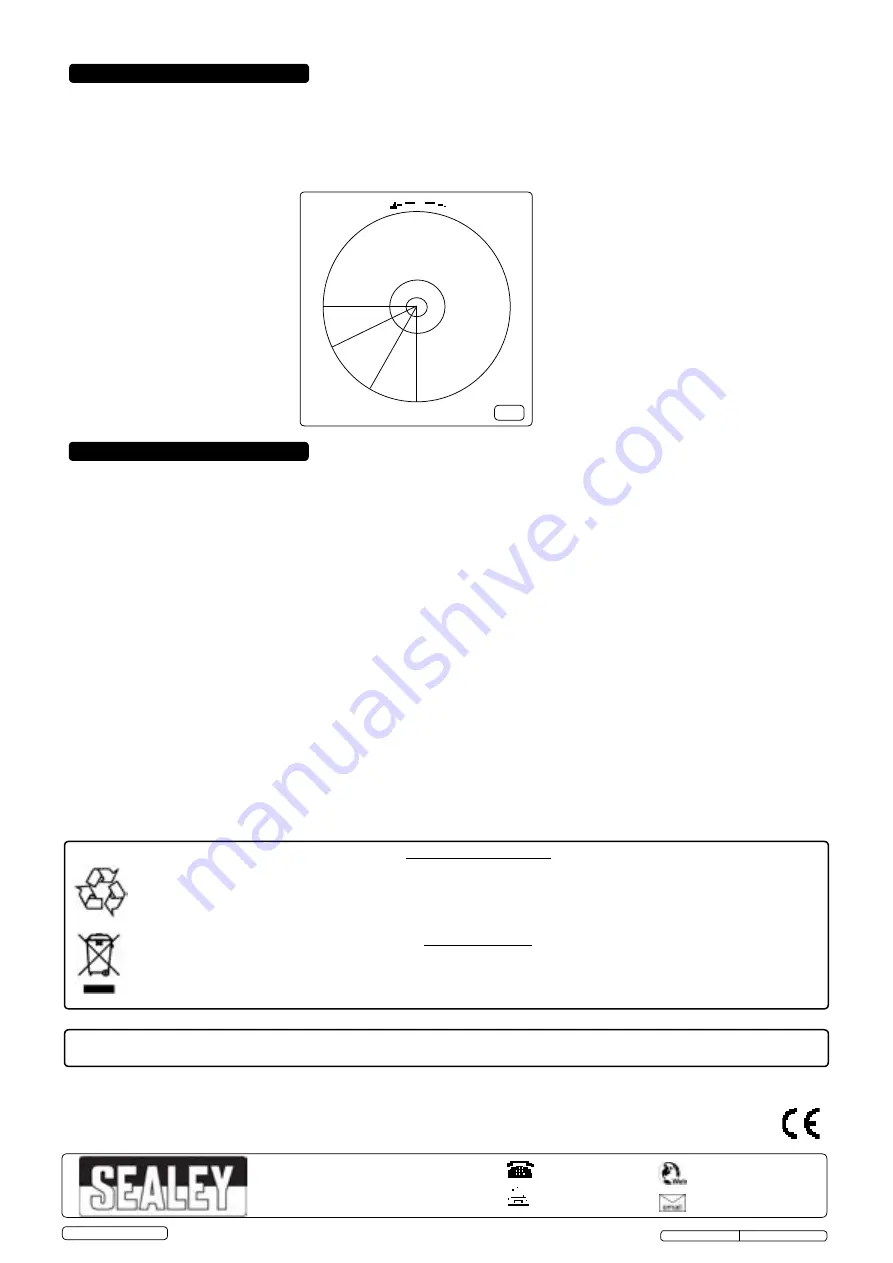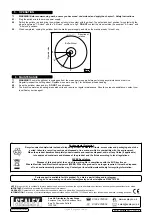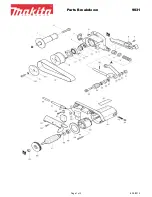
WARNING!
Before commencing work, ensure you have read, understood, and apply the chapter 1. Safety Instructions
5.1.
Plug the polisher into the mains power supply.
5.2.
Switch the polisher on and bring the workpiece slowly into contact with the wheel. The safest and best position for contact with the
wheel is between "7-0-clock" and the "8-0-clock" positions in fig.2.
DO NOT
contact the wheel outside the quadrant "6-0-clock" and
"9-0-clock" positions.
5.3.
When completed, unplug the polisher from the mains power supply, and clean the machine ready for next use.
WARNING!
Ensure the polisher is unplugged from the mains power supply before performing any maintenance or service.
6.1.
Regularly inspect the buffing wheel. Replace when worn, see fig.1 for details and thead handing.
6.2.
Keep the polisher clean and dry.
DO NOT
use abrasives.
6.3.
The machine motor and bearing are sealed units and require no regular maintenance. Should you require assistance, contact your
local Sealey service agent.
5. OPERATION
"6"
"9"
"8"
"7"
fig.2
o
perator side
Direction of
rotation
6. MAINTENANCE
Buffer Wheel
BB1502 BB2002 Issue: 1 - 06/01/15
NOTE:
It is our policy to continually improve products and as such we reserve the right to alter data, specifications and component parts without prior notice.
IMPORTANT:
no liability is accepted for incorrect use of this product.
WARRANTY:
Guarantee is 12 months from purchase date, proof of which will be required for any claim.
INFORMATION:
For a copy of our latest catalogue and promotions call us on 01284 757525 and leave your full name and address, including postcode.
01284 757500
01284 703534
sales@sealey.co.uk
Sole UK Distributor, Sealey Group,
Kempson Way, Suffolk Business Park
,
Bury St. Edmunds, Suffolk,
IP32 7AR
www.sealey.co.uk
Original Language Version
© Jack Sealey limited
Parts support is available for this product. To obtain a parts listing and/or diagram,
please log on to www.sealey.co.uk, email sales@sealey.co.uk or telephone 01284 757500.
Environmental Protection
Recycle unwanted materials instead of disposing of them as waste. All tools, accessories and packaging should be
sorted, taken to a recycling centre and disposed of in a manner which is compatible with the environment.
When the product becomes completely unserviceable and requires disposal, drain off any fluids (if applicable)
into approved containers and dispose of the product and the fluids according to local regulations.
WEEE Regulations
Dispose of this product at the end of its working life in compliance with the EU Directive on
Waste Electrical and Electronic Equipment (WEEE). When the product is no longer required, it must be disposed
of in an environmentally protective way. Contact your local solid waste authority for recycling information.





















